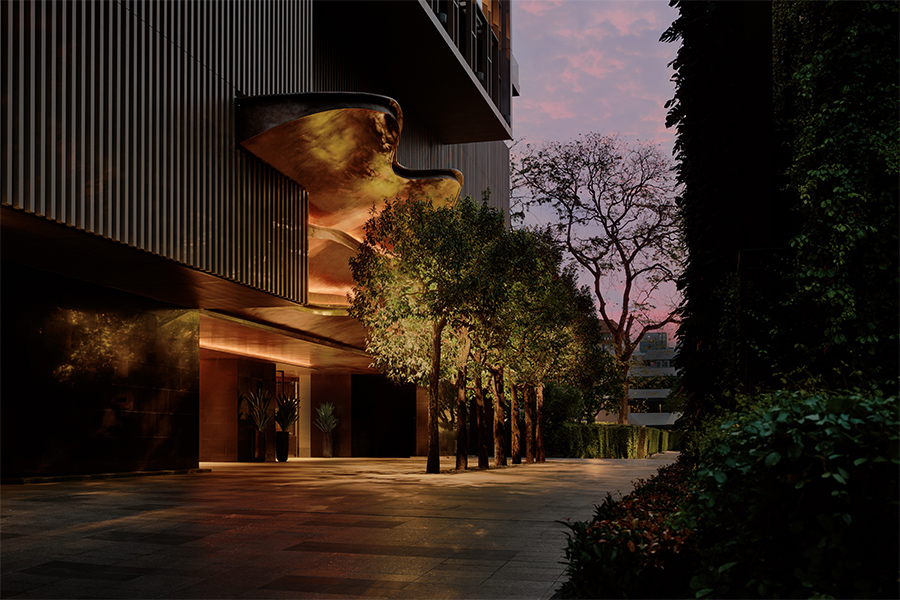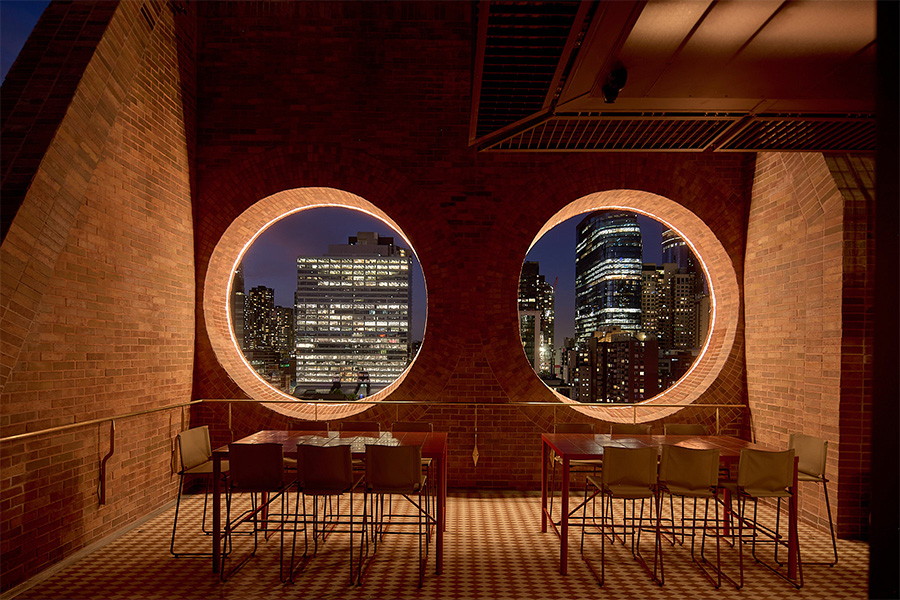The 8-year-old Sonder brand, which offers hotel-like services in 36 cities worldwide, is one of the largest entries in an emerging segment that marries the contactless, apartment-in-a-neighborhood allure of Airbnb with the professional cleaning and 24-hour availability of traditional hotels. This focus on contactless interaction may go against the basic tenets of hospitality, but in these pandemic times, companies like Sonder are adapting the model, and they may have the edge in a new era of hospitality.

Sonder offers accommodations in Miami, London, Dubai, Rome, and beyond
Sonder
Although the original model at Sonder was apartment-style accommodations, the brand expanded into hotels last year. Partnering with developers to lease large blocks, full floors, and entire purpose-built or renovated historic properties, its units are equipped for lengthy stays, with fully-stocked kitchens and laundry facilities. Most are located in residential neighborhoods that boast lively commercial corridors.
“Long before the pandemic, Sonder was focused on creating a seamless experience, along with self-contained spaces that offer more room to spread out,” says Shruti Challa, the company’s vice president of revenue. “The pandemic has brought unprecedented challenges to the hospitality industry [but] surprisingly this crisis has also accelerated the process of reinventing travel.” Sonder offers features like keyless checkin, digital 24/7 concierge, and dedicated elevators so guests can avoid crowded lobbies and long lines.
Bode
The distinguishing factor for Irvine, California-based Bode is the chance for groups to stay and play together. The brand offers a variety of two- to four-bedroom units (plus a few options for solo travelers) with kitchens and often private patios or small yards. Its common space, the Hub, is an all-in-one café, lounge, and reception. The brand launched two years ago in Nashville within a refurbished condo building, and now has a location in Chattanooga, Tennessee, with plans to expand to Palm Springs, California; Savannah, Georgia; and Greenville, South Carolina.
“Our initial thought with contactless was that we felt guests don’t need to have their hands held anymore,” says CEO Philip Bates. “Now, we’re finding that model to play very well into the post-COVID-19 era. The sense of a built-in community that comes when you travel with your own extended bubble seems tailor-made for this time. For future properties, we’ll be looking at even larger balconies and increased use of open-air corridors.”

San Francisco’s Phoenix Hotel features a pool and cabanas
Bunkhouse Group
Known for its retro upgrades of languishing properties, Austin-based Bunkhouse Group‘s eight-property portfolio includes El Cosmico—a complex of individual trailers and yurts in Marfa, Texas—as well as the renovated midcentury Austin Motel and its newest property, the Hotel Magdalena in Austin, which features four buildings connected via a series of exposed elevated walkways and courtyards.
“Bunkhouse has always appreciated exterior corridors and outdoor space for aesthetic reasons,” says the hospitality group’s design director Tenaya Hills. “In the time of COVID, though, there’s an added benefit of the light touch. You’re not spending time in a lobby and fresh air is just outside your hotel room’s front door.” With regional roadtrips as the preferred mode of travel right now, “the classic motor court style pairs perfectly with travelers looking for a low contact but still memorable experience,” she says.

The Austin Motel offers six different room configurations, including the Poolside King
Bunkhouse Group images by Nick Simonite



